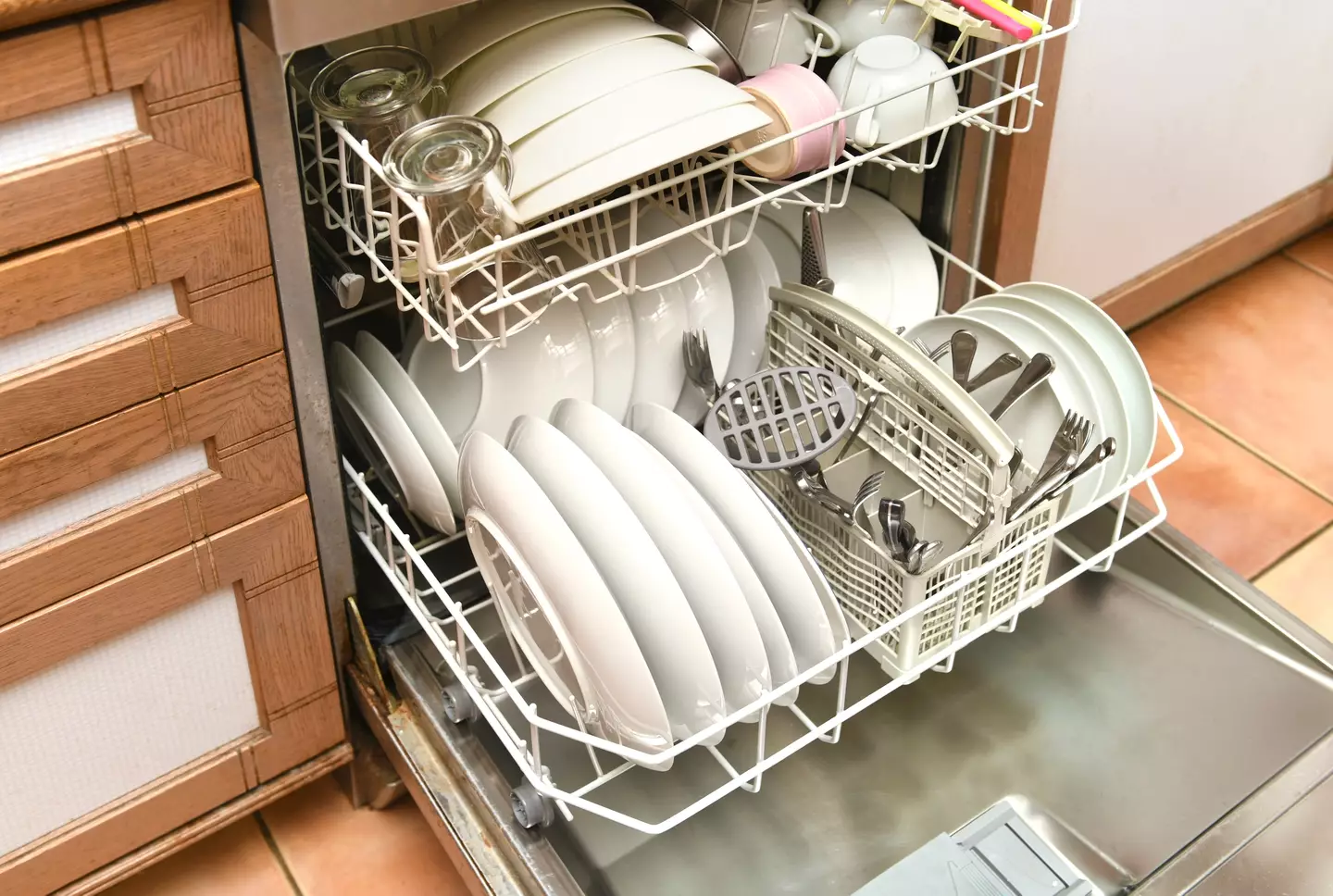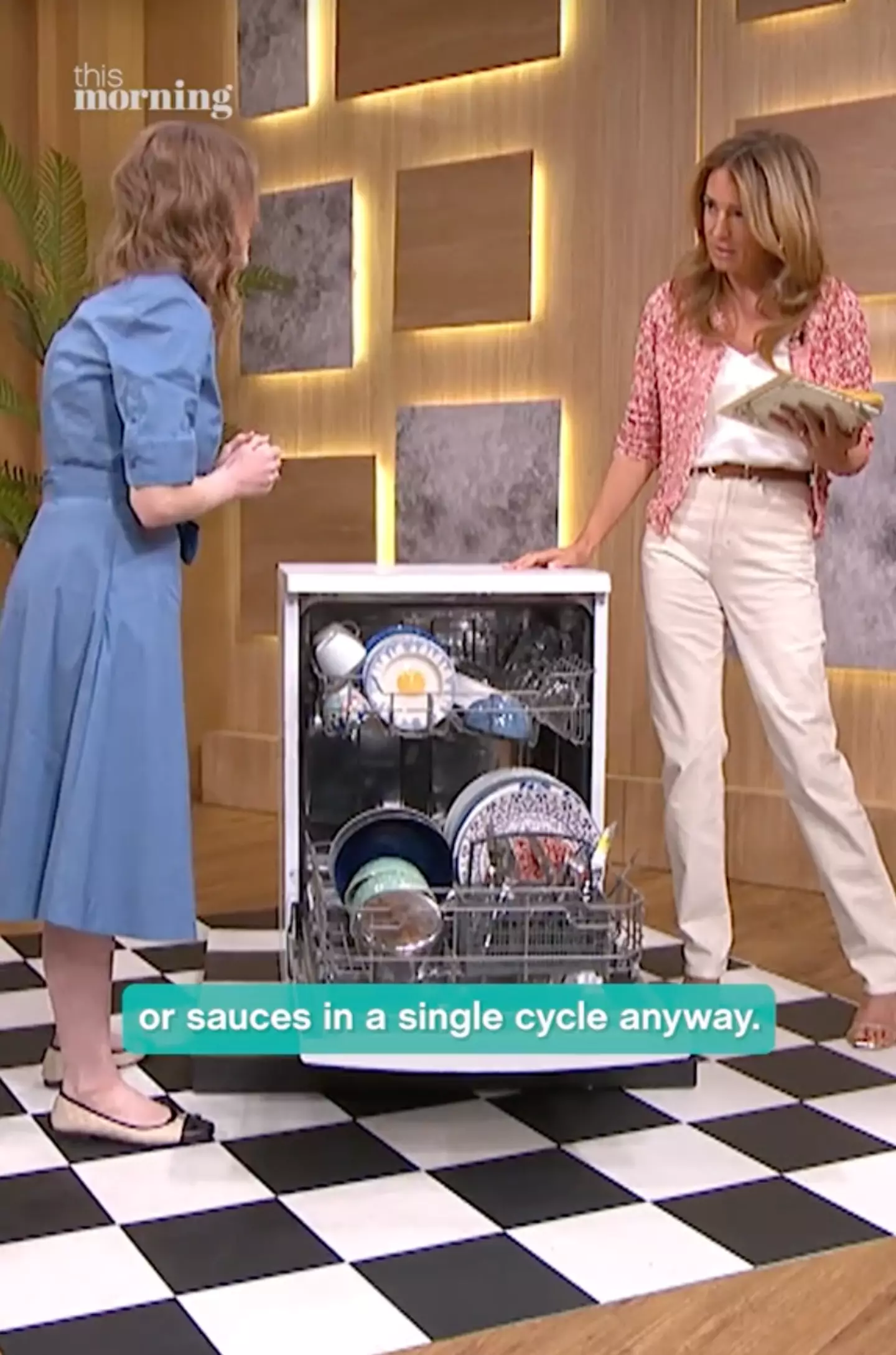Amid the dreaded (and seemingly unending) cost of living crisis, it’s no surprise that today’s UK homeowners are looking for any means possible to preserve their wallets – and one expert has recommended a clever new dishwasher hack .
Whether it’s cooking meals in batches, taking note of your home’s “ghost load” or relying on chunky knit blankets instead of turning on the heating, financial experts are constantly suggesting various ways Brits can save money.
The problem, however, is that many of these supposedly useful tricks often involve some kind of sacrifice: a nutritious meal, thorough washing of clothes, and warmth.
This week, however, one cleaning expert revealed a pretty simple household practice that she says will not only save you money, but will also be good for the environment AND save you effort, all without having to sacrifice anything important.
Good Housekeeping Cleaning Professional Katie Mottram appeared on This morning earlier this week, where she spoke with hosts Ben Shephard and Cat Deeley about the do’s and don’ts of washing dishes.
When asked about the old theory that it is absolutely essential To rinse the plates, bowls, and pans before putting them in the machine, Katie finally set the record straight.
“This is a long-standing debate,” asks host Cat. “Do we rinse the dishes before putting them in the dishwasher or do we just scrape them and put them right in?”

Apparently we shouldn’t rinse before stacking our dishwasher. (Peter Dazeley/Getty)
“The latter,” Katie confirmed. “You never want to get up. Rinsing is basically a way to waste water, time and money.”
He went on to explain, “Dishwashers are advanced enough now that they can basically remove all greasy residue or sauces in a single cycle.”
So, by turning off the tap and quickly scrubbing the dirtiest items before carefully stacking them inside your home appliance, you are inadvertently, and seemingly unnecessarily, contributing to your already rising water bills.
I mean, think about how many times a week you load the dishwasher and how many Items are carefully placed inside.
If you wash every single cutlery, you’ll definitely be racking up pounds on your bill.
However, from the looks of it, viewers were not thrilled with the news and many said they feel bad. No Rinse your dishes beforehand.

The advice has left viewers divided. (ITV)
“I definitely won’t put pieces of meat or eggs in my dishwasher,” one insisted on social media.
Another continued: “Noooo…definitely rinses. The effort prevents cleaning the dishwasher to clean pipes etc.”
“Yes, but then you need to clean your dishwasher more because it’s full of food. It doesn’t just go away!!” a third hit.
The handy trick comes just days after a financial expert warned Tyla about the risk of “phantom charging” and how you can avoid paying more to run your appliances.
For those unfamiliar with this rather unheard of concept, if you’re guilty of having your TV on standby when you go to bed, instead of turning it off at the wall, you’re unfortunately, inadvertently, a victim of phantom charging. . .
Rachel Kerrone, personal finance expert at Starling Bank, told us all We need to know about the secret cost.
.jpg)
‘Phantom charging’ could cost you a fortune. (above/Getty)
“This is basically leaving your appliances and devices on and on standby and plugged in and on at the wall.
“For example, just because you’re not boiling the kettle all the time doesn’t mean leaving it on on the wall doesn’t cost you anything.
“This applies to a range of common household appliances and devices, from your kettle, microwave and fryer to your TV, Sky Box and Xbox.”
Naturally, there are some inevitable ways we fall victim to phantom charging.
“While there are obvious things that should be left on all the time, like the refrigerator and freezer, as well as the broadband router,” Rachel said. “You shouldn’t ignore the flashing microwave clock or the standby light on the TV.”
Featured Image Credit: This Morning/Kseniya Ovchinnikova/Getty Images
Topics: Tricks, Cleaning, Money, Cost of Living, Life Hacks



